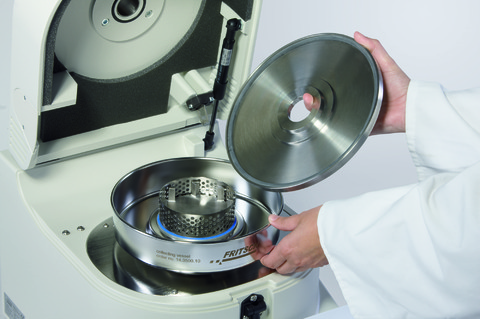
Fritsch products have been applied to the complex process of analysing maize kernal DNA.
Genetically modified maize was developed in order to gain a higher resistance against parasites such as the Western Corn Rootworm or the European Corn Borer.
It also enables stable and higher crop yields which mature more quickly.
Transgenic maize produces a toxin to repel parasites, but many questions remain unanswered such as the direct effect on humans, the impact on animals when used as animal feed, implication for soil and subsequent crops and the potential transfer of the modified gene to other crops.
The cultivation and use of transgenic maize is not without controversy, resulting in the need to test the seeds for possible properties of genetically modified contents.
To examine one particular batch, three samples of 1,000 kernels were counted off and weighed. 1.000 kernels weighed 275g, of which 3g were weighed for the isolation of the DNA.
It was then necessary to grind the material as fine as possible as calculations demonstrated that without comminution, only each one-hundredth kernel of the above sample would be analysed.
The Variable-Speed Rotor Mill PULVERISETTE 14 was chosen in light of the need to avoid all types of cross contamination, comminution down to at least 50% smaller 0.5 mm sieving and prevention of thermal damage affecting the analysis results.
The result was monitored with a sieve cut of 0.5mm, along with the use of the Vibratory Sieve Shaker ANALYSETTE 3 PRO.
Maize comminuted with the Variable-Speed Rotor Mill PULVERISETTE 14 by means of a 1 mm sieve achieved 69% at <0.5mm, against the required 52% at <0.5mm.
By using the 0.5 mm sieve in the mill, the fineness was further improved to 89% at <0.5 mm.
Maize kernels can still be comminuted when using a 2 mm sieve, although the sample must be added significantly more slowly and it becomes rather warm.






